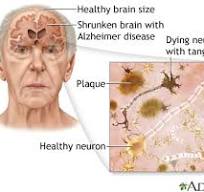INTRODUCTION
Health is wealth—a simple yet profound truth. One sickness can drain a
lifetime of savings, leaving individuals and families in distress. While modern
medicine has made remarkable strides in diagnosing and treating diseases, many
health conditions continue to defy medical solutions, pushing us to explore
alternative approaches.
Natural Remedies For Crohn’s Disease
Crohn’s Disease is a chronic inflammatory bowel disease (IBD) that
affects the gastrointestinal (GI) tract, leading to symptoms such as
abdominal pain, diarrhea, fatigue, and weight loss. It is an autoimmune
condition in which the body’s immune system attacks the digestive
tract, resulting in persistent inflammation. While medical treatment,
including anti-inflammatory drugs, immunosuppressants, and
sometimes surgery, is essential for managing moderate to severe cases,
some individuals report improvements through specific dietary choices
and natural supportive therapies. Natural approaches should never
replace medical care, but they can help ease symptoms and promote
better gut function when used under supervision.
1. Soluble Fiber-Rich Foods
How it works: Soluble fiber helps absorb excess liquid in the
intestines and forms a gel-like substance that can ease diarrhea
and promote bowel regularity. It also provides nourishment for
beneficial gut bacteria.
Usage: Incorporate foods such as oats, bananas, peeled apples,
and carrots into your daily diet. These are easier on the gut than
insoluble fiber sources and are less likely to irritate inflamed
intestines. Cooked or pureed versions are especially gentle during
flare-ups.
Where to find: These foods are commonly found in local
markets, grocery stores, and health food shops.
2. Probiotics
How they work: Probiotics are beneficial bacteria that support
intestinal balance and may help reduce inflammation in the gut
lining. Certain strains, such as Lactobacillus and
Bifidobacterium, may aid in reducing symptoms like bloating,
diarrhea, and gas.
Usage: Eat probiotic-rich foods such as plain yogurt with live
cultures, kefir, sauerkraut, and miso. Alternatively, probiotic
supplements can be used, particularly during or after antibiotic
treatments. Look for products labeled with specific strains and
high colony-forming units (CFUs).
Where to find: Natural yogurt is available in most local markets.
Probiotic supplements can be found in pharmacies and health
food stores.
3. Omega-3 Fatty Acids
How they work: Omega-3 fatty acids have anti-inflammatory
effects that may help reduce intestinal inflammation associated
with Crohn’s Disease. They can also support overall immune
function and cardiovascular health.
Usage: Include fatty fish like salmon, mackerel, and sardines in
your diet. Plant-based options include flaxseeds and chia seeds.
Fish oil supplements are also available but should be used with a
healthcare provider’s guidance.
Where to find: Fatty fish and seeds can be sourced from local
markets; supplements are available at pharmacies and health
stores.
4. Turmeric (Curcumin)
How it works: Curcumin, the active compound in turmeric, has
been shown to reduce inflammation in various chronic
conditions, including IBD. It may help maintain remission and
alleviate mild symptoms.
Usage: Mix 1/2 teaspoon of turmeric powder into warm milk or
take standardized curcumin capsules. Always consult a doctor
before beginning supplements, especially if you are on
medications.
Where to find: Turmeric powder is widely sold in local markets;
curcumin capsules are available at health food and supplement
stores.
5. Aloe Vera Juice
How it works: Aloe vera has anti-inflammatory and healing
properties that may help soothe the lining of the digestive tract.
Some people with mild symptoms report reduced abdominal
discomfort and better bowel movement regularity.
Usage: Drink a small amount (2–4 tablespoons) of food-grade
aloe vera juice daily. Avoid products with added laxatives or
artificial ingredients.
Where to find: Pure aloe vera juice is available at most health
food stores and natural remedy outlets.
6. Stress Reduction Techniques
How they work: Chronic stress can exacerbate Crohn’s
symptoms. Relaxation techniques such as deep breathing,
meditation, yoga, and gentle exercise can support emotional and
physical well-being.
Usage: Set aside 10–20 minutes each day for meditation or
breathing exercises. Gentle forms of movement like walking or
stretching can also be beneficial.
Where to practice: These techniques can be done at home or
with guidance from wellness centers or online platforms.
Key Consideration
Crohn’s Disease is a serious medical condition that requires regular
monitoring and treatment by a gastroenterologist. Natural remedies,
while helpful, should only be used to complement prescribed therapies
and never to substitute them. Always consult your healthcare provider
before introducing new foods or supplements into your routine,
particularly during flare-ups or when using other medications.



